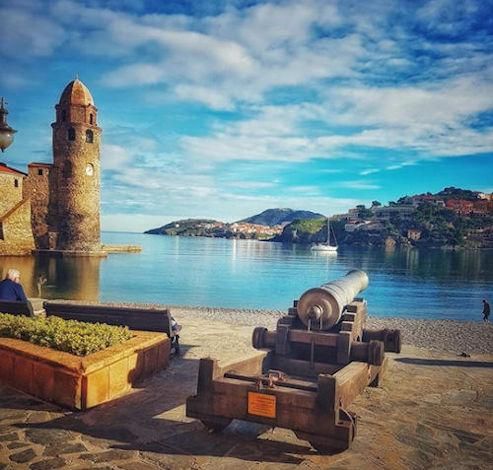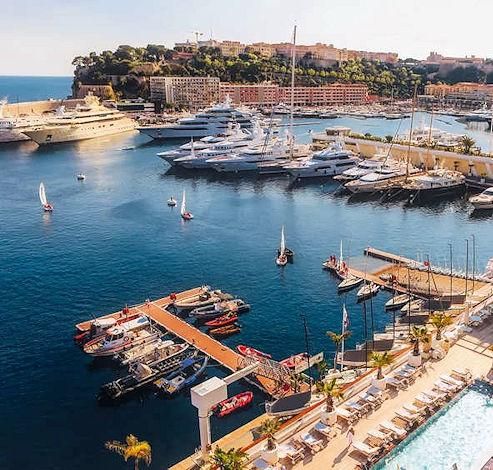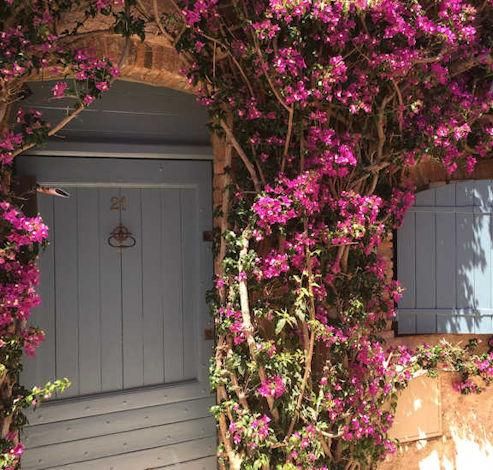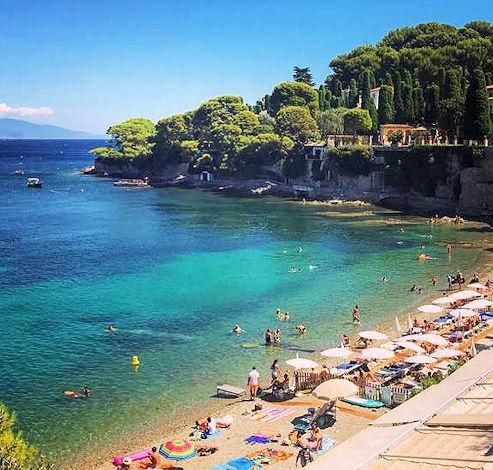2023 is the right time to invest in Real Estate in France
- Last updated on .
- Hits: 11070
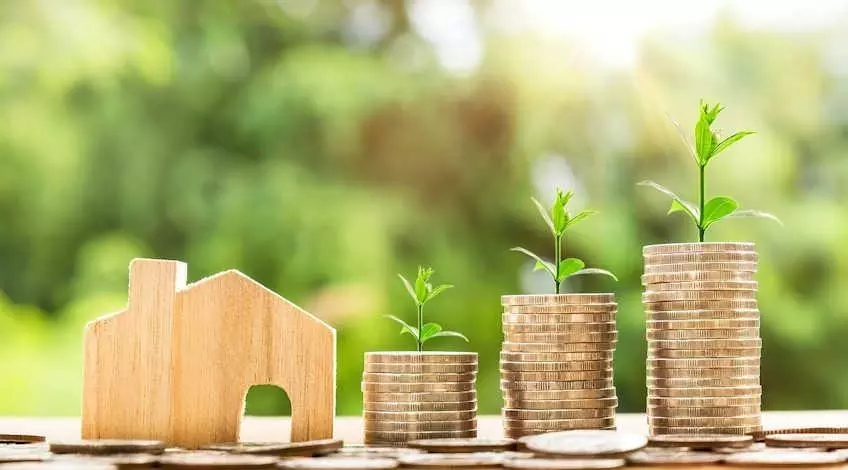 If you are thinking of investing in real estate in 2023, possibly in the Southern Mediterranean countries of France, Italy, Spain or Portugal, you want to be sure that the future economic prospects of each country are solid. Basically, to time your property investment right, you want to make sure that the economy continues to grow and the real estate market provides a good return. This article highlights some strong grounds for optimism for the French economy and the Property market in France over the next 5 years, when compared to Italy, Spain or Portugal. It analyses the forecasts for GDP growth, inflation, future mortgage interest rates and predictions of house price increases in France.
If you are thinking of investing in real estate in 2023, possibly in the Southern Mediterranean countries of France, Italy, Spain or Portugal, you want to be sure that the future economic prospects of each country are solid. Basically, to time your property investment right, you want to make sure that the economy continues to grow and the real estate market provides a good return. This article highlights some strong grounds for optimism for the French economy and the Property market in France over the next 5 years, when compared to Italy, Spain or Portugal. It analyses the forecasts for GDP growth, inflation, future mortgage interest rates and predictions of house price increases in France.
The housing market in France grew rapidly in the period of 2000 to 2007, with house prices increasing by +12% per year. House prices slumped by around 15% in 2008 and continued to slide and then stabilize during 2012-2015. Since 2016, real estate prices in France have continued an upward trend. This pattern in the French property market seems to mirror quite closely developments in the French economy. The stagnation experienced under Nicolas Sarkozy and Francois Hollande, has given way to steady growth under the Premiership of Emmanuel Macron.
Growing French economy 2022
Following the devastating effect of the Covid-19 global pandemic the French economy grew by +6.8% in 2021 and +2.6% in 2022. The European Commission is forecasting that the French economy will grow modestly during 2023 (around +0.6%) before returning to growth of around +1.7% during 2024. The French Finance Minister, Bruno Le Maire, recently told the French Parliament that
“We have among the best economic growth figures in the euro zone and we got back to pre-crisis levels of economic activity three months sooner than expected"
France response to the Covid pandemic was swift and far-reaching. Vast amounts of money was spent on supporting households and firms during lockdowns. This kept the France's economy ticking over during the pandemic and and crucially, employees actually employed by their comapnies. As a result, there has been far less fall-off in business activity and reduced household spending than in the US and other countries (where the economy was shuttered down and small firms in particular fell by the way-side).
The actual impact of these measures, was that the French economy returned to pre-Covid output levels during the Autumn of 2021 - far ahead of Germany, the UK, Italy and Spain. Furthermore, with President Macron determined to continue the growth of the economy out of the pandemic crisis and towards meeting the challenging Climate Crisis goals, he is investing a further €100 billion euros in a green recovery plan.
France looks to be reasonably insulated from some of the worst effects of a global slowdown in trade. Analysis by the Financial Times shows that French exports contribute only 31% of French GDP (versus 48% for the rest of Europe) and it earns a substantial share of revenue from services (70%) which tend to be less affected by global trade pressures [Source: Financial Times].
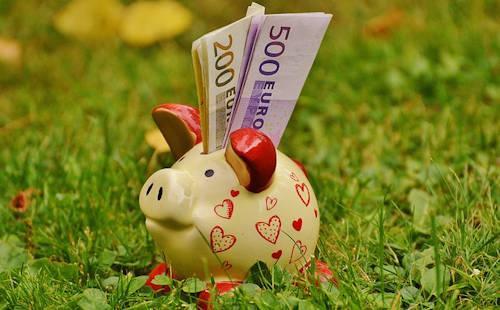 The rate of inflation in France remains low and the Banque de France is predicting that it should continue to decline further.
The rate of inflation in France remains low and the Banque de France is predicting that it should continue to decline further.
Headline inflation should temporarily become negative at the end of 2021, the fall in the price of oil being combined with the effects of the drop in activity. It should stand at only 0.4% on average in 2021. Then it should recover slightly in 2022, while remaining very moderate in our central scenario.
SOURCE: Banque de France Macro-Economic Projections 2021
The interest rate on French Mortgages have remained at historically low levels in 2021 and this is expected to continue into 2022 As a result, the Banque de France, has reported the annual growth rate of new French mortgages remained at a high level (+ 5.3% in the 12 months up to August 2021) and the average interest rates on new fixed rate French housing loans reached a new long term low of 1.05% in August 2021. The forecast for French mortgage rates for 2022, shows that the underlying low interest rates will continue for the foreseeable future.
SOURCE: Banque-de-France, Sept 2021
In May 2021, the Banque de France reported that the total amount of French housing loans rose sharply by +€7.2bn (following a contraction of -€0.2bn in April 2021). The total value of new housing loans in May 2021 stood at €21.1 billion, although around a third of new loans issued resulted from re-negotiations of existing loan commitments. During the following 3 months, home lending increased by +5.3% up to the end of August 2021.
The one black cloud for the French economy however, remains the level of unemployment, but even this is falling. Unemployment was down to 7.2% just before the pandemic hit in 2020 and is now standing at 8.1% in Q4 2021). The French President can also point to the fact that the ratio of new hires on coveted open-ended permanent employment contracts (an essential pre-requisite in France to get better access housing and loans) compared to fixed term contracts, is up to 49% (it stood at 44% when he took office).
Reasons for hope: resurgence of French Entrepreneurship
The French Managing Director of Peugeot-Citroen (PSA) once commented, that:
the French invented the word 'Entrepreneur' but we have no idea what it means
From my point of view, if I was to list all of the problems with the French economy, the lack of entrepreneurship would be top of the list. I always tell the story about some good French friends of ours who once invited us to a party for their 25 year old daughter. What was the occasion I hear you ask? Engagement, birth of a child, completion of PhD, or setting up a new business? Well the occasion was that she had just been provided with a CDI Contrat by her employer. Basically she had been made a permanent contract employee and was now virtually impossible to fire. That was the reason for the party. That was the occasion!
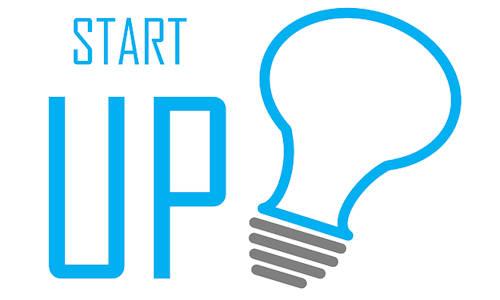 France does have great entrepreneurs. People who see gaps in the market and go for it. But they are not valued. If you asked the average French person to think of a 'business person', I am sure that they would imagine the image the scene of a "fat, middle-aged, Immobilier (Real Estate agent), having lunch at a restaurant paid for on business expenses". There just isn't that sense of importance attached to achievements in a business start-up, as opposed to artistic endeavours.
France does have great entrepreneurs. People who see gaps in the market and go for it. But they are not valued. If you asked the average French person to think of a 'business person', I am sure that they would imagine the image the scene of a "fat, middle-aged, Immobilier (Real Estate agent), having lunch at a restaurant paid for on business expenses". There just isn't that sense of importance attached to achievements in a business start-up, as opposed to artistic endeavours.
25% of the French workforce is employed in the Public Sector. When you add in jobs in the privatized Utility companies, banks, insurance and larger corporations it comes to around 45% of the workforce. When I look at the friends of my eldest son who are all about 21-22 years old, these are the sectors of the economy that they are looking to find jobs in. The sort of job where you can work for 20-30 years, pick up a Pension and retire before age 60.
But, I get a sense that this is changing. President Macron has made a big thing of turning France into a "start-up nation" as a way to crack its long-standing unemployment problem. It looks like his efforts are slowly beginning to bear fruit. In October 2019, INSEE, the official French Statistical body reported that over 70,000 new companies had been created in September 2019 alone. Over the previous 12 months the number of new business start ups in France had increased by +16.6% [Source: INSEE].
Another source of optimism concerns the large diaspora of French nationals living outside of France. More French nationals live in London than Bordeaux, Nantes and Strasbourg. London has a long-standing French community, dating back to the persecution of the Huguenots in the 16th Century and the French Aristocracy fleeing the Reign of Terror during the French revolution. But what makes this new-influx of French citizens to the UK, around 300,00 people, is that it is largely made up of a group of professional class in the 25-35 age group. One would almost say that these people are the future of France, the best and brightest. What gives me reasons for optimism about the French economy over the next 5 years is that this group of people will eventually return to France (as a result of Brexit and the general law of demographics). Hopefully, they will return with new ideas about how businesses should be run and will create the sense of entrepreneurship that is sadly needed in France.
Summary: grounds for optimism
So overall, despite this dreadful Covid health crisis, the picture for the French economy during 2022 is pretty positive. The economy will continue to grow, at a time when other European countries will experience stagnation or stuttering growth. There do remain some structural problems which need to be addressed in terms of liberalizing the labour market and encouraging companies to take on new employees and these will need to be handled with care. But there is certainly reason to raise a glass or two. But how will the growth in the French economy translate to the French Property market?
Real Estate market in France 2021-22
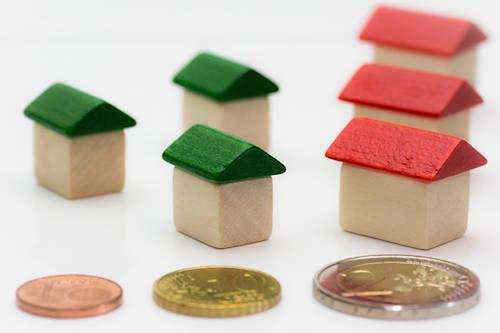 House prices in France are forecast to grow by 3.5% during 2022. The latest statistics show that property prices in France rose by an average of +5.9% during 2021 (+5.0% for apartments and +6.8% for houses). In terms of house sales, in the 12 months to May 2021 there were 1,130,000 house sale transactions, the highest level since 2000 [Source: Notaires.fr].
House prices in France are forecast to grow by 3.5% during 2022. The latest statistics show that property prices in France rose by an average of +5.9% during 2021 (+5.0% for apartments and +6.8% for houses). In terms of house sales, in the 12 months to May 2021 there were 1,130,000 house sale transactions, the highest level since 2000 [Source: Notaires.fr].
The French property market has experienced over 6 years of solid growth since early 2016, but this growth trend has hidden some wide discrepancies in the house prices between regions and towns. The key standout area for growth in house prices include the cities of:
- Bordeaux, where prices have grown strongly over the last decade (culminating in a +42% increase in house prices over a 10 year period)
- Nantes, where house prices increased by +10.3% in 2021
- Amiens in Northen France recorded a staggering increase of +18.1% during 2021
- Montauban, just north of Toulouse recorded a similar large increase of +17.1% in the 12 months to March 2021
House prices in Poitiers, in Central Western France grew by +11.9% during 2021 (with the average house sale price just €179,000). This is not surprising given the fact that Poitiers was recently named by L'Express magazine as the second best city to live in France (see 10 Best Places to live & work in France 2022).
The cheapest place to buy a property in France in 2021 were the towns of Saint Etienne and Châteauroux. Average property prices in the town of Châteauroux in the central department of Indre, just below the Loire valley were just €130,000 during the 12 month period Q1 2020 to Q2 2021. In the industrial town of Saint-Etienne, property prices were are just €1000 per m2 (which contrasts sharply with an average of €5,000 per m2 in the nearby city of Lyon, just 50 km away).
The conclusion of the Banque de France report on the property market in France in September 2021, highlighted
The French housing market is surprisingly resilient . . . with interest rates remaining low, bank lending will continue to grow . . . property prices are forecast to grow moderately during 2022. . . .
Long term return on Property Investment in France
When looking at the longer term valuation of property in France, Paddy Gibbins a Property Investment expert in South France with Artaxa Immo, states that the investment return on house prices in France is determined by a number of distinct factors. As we have seen above, house prices vary markedly between different regions in France and there is a widespread concern about the hollowing-out of rural France, as young people head to the larger cities and the coast to find work. So the Location of property is often critical, but less in terms of proximity to schools (as in the UK or US) and more about proximity to local airports, autoroutes, TGV train stations, industry & commerce and the distance from the coast (ideally less than 25 mins for maximum return). The type of property also has a bearing on the price forecasting model to be used, especially when considering character old stone properties v new build properties:
In France, older properties tend to keep and maintain their value, with only slow growth in value unless there has been a spectacular refurbishment.
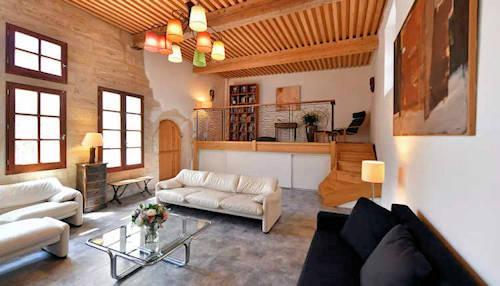 It is very unlikely that you will see +10-20% returns in a 2-3 year time frame. Furthermore, the Capital gains tax system in France acts as a real impediment to fix and flip developments (unless the property is your principal residence). If you are lucky, the renovation money that you put into your house may be realised as a premium on the sale price, but you are unlikely to see a profit as such. In the worse case scenario, you may only receive the price you paid for the house despite spending a lot of money in the interim. In reality, in France there is no money to be gained from fixing a roof or rewiring the electrics, but installing a pool or creating a roof terrace can make the property more sell-able and you would most likely see a return of the installation costs.
It is very unlikely that you will see +10-20% returns in a 2-3 year time frame. Furthermore, the Capital gains tax system in France acts as a real impediment to fix and flip developments (unless the property is your principal residence). If you are lucky, the renovation money that you put into your house may be realised as a premium on the sale price, but you are unlikely to see a profit as such. In the worse case scenario, you may only receive the price you paid for the house despite spending a lot of money in the interim. In reality, in France there is no money to be gained from fixing a roof or rewiring the electrics, but installing a pool or creating a roof terrace can make the property more sell-able and you would most likely see a return of the installation costs.
For new-builds however, there is often a sharp increase in market value up to the 10-15 year point. Then the property value levels off for a few years before declining in relative terms. The reason for this is because whilst there is a limited supply of old stone properties, for new builds more supply keeps on entering the market each year. The newer properties are able to benefit from developments in building materials and the fixtures and furnishings are less likely to need being replaced.
Therefore the long term price projection for your new build property in France resembles a flattened upturned 'U' shape.
Paddy however cautions foreign investors to be aware of the standard of French property from before the 1950's. In particular he warns potential purchasers to get a full survey covering the electrical wiring, the state of the foundations and any damp issues (or 'humiditie' as it is referred to), the plumbing and waste disposal from the property, the state of the roof and insulation and access rights to the property. Paddy states that "bargains are still there to be had if investors are prepared to put the work in researching the market. In particular, when approximately 50% of properties in France are sold direct by the owner, it is important to have people on the ground who can find the 'hidden' properties that are on sale".
Why buy real estate in France in 2022
Hopefully this article has given you a positive impression of the France economy and the French property market, without going too overboard on the spin. Yes, France still has its problems but my overall prediction is that the French economy will rebound strongly from the Coronavirus health crisis and continue on the path of economic growth through 2021 into 2022. If for nothing else, I believe economies turn the corner, not necessarily because of Governments, but because people just get fed up being depressed and start doing something: spending, investing, doing something different.
The combination of French ex-Pats returning from London and continued growth in new businesses, will I believe usher in a new period of entrepreneurship within France. But more than anything else, I believe that the French economy will prosper because it is France. It is quite simply the best place in Europe to live. Quality of life is high: it is relatively safe, it is beautiful, it is chic, it has heritage, it has fantastic healthcare, the climate is amazing; it has beaches, mountains & lakes and it has great culture. So forget all the doomsayers who once owned a Citroen Picasso where the door handle kept falling off or the tourist who was once rudely ignored by a Parisian waiter. France is back and it is open for business.
Thinking of buying in France . . . ?
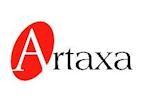 Artaxa Immo, is a French real estate business that specialises in helping Foreign investors buy French property. The agency is based in the beautiful wine village of Roujan and provides a property sales teams across the Languedoc region. Artaxa is a genuinely International real estate firm, employing multi-lingual staff in the three regional offices. For further information about buying property in South France, please contact Jane Laverock on +33 6 95 50 19 21 or by email at Jane@artaxaimmo. Alternatively, if you have any particular questions you would like to ask about living in the South of France, then contact Iain by Email. If you liked the article then please share it with others using the Twitter and Facebook buttons below.
Artaxa Immo, is a French real estate business that specialises in helping Foreign investors buy French property. The agency is based in the beautiful wine village of Roujan and provides a property sales teams across the Languedoc region. Artaxa is a genuinely International real estate firm, employing multi-lingual staff in the three regional offices. For further information about buying property in South France, please contact Jane Laverock on +33 6 95 50 19 21 or by email at Jane@artaxaimmo. Alternatively, if you have any particular questions you would like to ask about living in the South of France, then contact Iain by Email. If you liked the article then please share it with others using the Twitter and Facebook buttons below.

